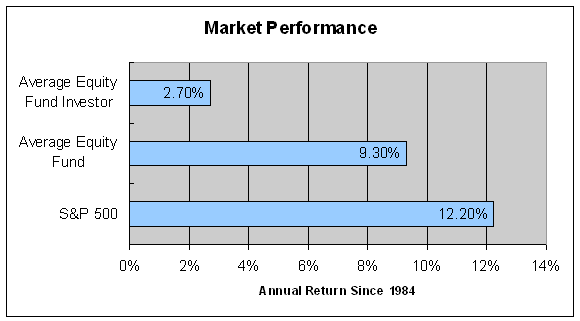| Welcome To Our Company | We Can Help | Our Investment Philosophy | Contact TriVant |
 |
While the Standard & Poor's 500 Stock Index has risen at a 12.2% average annual rate since 1984, the average equity fund has grown at a 9.3% rate, only three-quarters of the stock market's return. Furthermore, the returns incurred by the average equity fund investor since 1984 have averaged just 2.7% per year, a shocking shortfall to the 9.3% return earned by the average fund. The result is that the average fund investor has earned less than one-quarter of the stock market's 12.2% annual return since 1984. This is dismal market performance!
What accounts for these shortfalls? They are largely created by the excessive costs incurred by mutual funds. How could it possibly be otherwise? With expert professional investors dominating the financial markets, as a group they must earn the market return before costs (a zero-sum game) and fall short of the market by the amount of the same costs they incur in the futile effort to gain an edge (a loser's game). 'All-in' costs for the average equity fund come to as much as 3% per year - not surprisingly, very close to the 2.9 percentage points by which the annual returns of mutual funds lagged the stock market during 1984-2002. |
